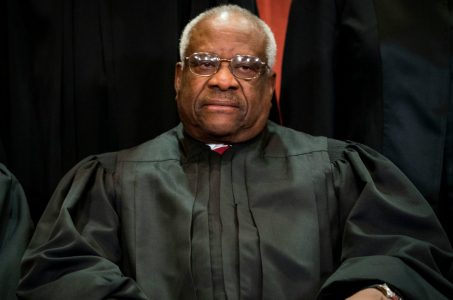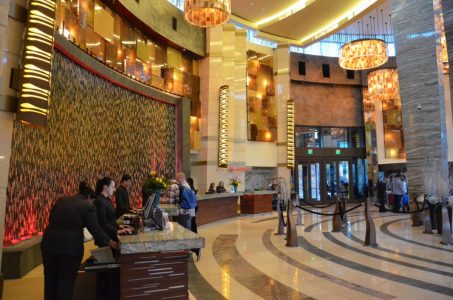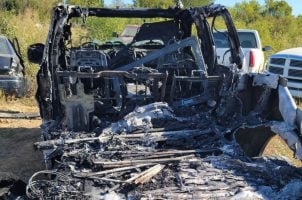COVID-19 Cases Present at California Casino Early in Pandemic, Lawsuit Shows
Posted on: September 9, 2020, 09:06h.
Last updated on: September 9, 2020, 01:34h.
COVID-19 was spreading among employees and patrons of the Jamul Casino, San Diego County, in early March. A fact that was not reported to the public according to a lawsuit filed by the Jamul Indian Village Development Corp. against its insurance company, Lexington Insurance, according to The LA Times.

The Jamul is one of many tribal and commercial casinos currently suing insurance providers for financial damage incurred during the lockdown. The tribe said in its filing it “suffered a catastrophic loss of business income” because of the pandemic.
But the suit also reveals the tribe discovered that two Jamul Casino employees and one patron had likely contracted COVID-19 around March 12. That’s just a day after the World Health Organization declared the virus a global pandemic, and a week before California issued a mandatory statewide stay-at-home order.
Unbound by the jurisdiction of the state, the casino closed of its own volition on March 20, along with all other tribal operations in the county.
Collision Course with Sheriff
Had they not closed, the tribal casinos would have found themselves on a collision course with San Diego County Sheriff Bill Gore. He had already made up his mind that public health emergencies should trump tribal sovereignty.
The lawsuit shows that Gore wrote to all tribes based in San Diego County on March 18 warning them to abide by the county’s public health order banning indoor dining and gatherings of 50 or more people.
On March 19, Gore wrote another letter warning that failure to comply would result in measures that “at a minimum, include restricting access to tribal lands by the general public.” It would also impact a tribe’s ability to “obtain assistance and reimbursement for emergency protective measures, such as law enforcement and other measures necessary to protect public health and safety,” he added.
Jamul Indian Village Chairwoman Erica Pinto told The LA Times that the sheriff’s threats were not part of the tribes’ decision to close.
“We do not fall under jurisdiction of the county,” Pinto reiterated. “Our decision to close was strictly a joint effort to protect the people.”
Official Silence
But the Times wonders why tribal sovereignty should prevent county health officials from publicly releasing information about COVID-19 outbreaks at local casinos.
Officials have identified 217 San Diego County residents who said they visited the casino in the 14 days prior to illness onset. Of those, 76 were casino staff members.
But officials have failed to identify where these outbreaks occurred. Twelve of the individuals were hospitalized, and one person, identified as a casino patron, died, the Times reports.
Related News Articles
US Supreme Court Rejects Oklahoma Lawsuit Against Tribal Gaming Manufacturer
Choctaw Casino Garage Fire, Explosion Under Investigation in Oklahoma
Most Popular
FTC: Casino Resort Fees Must Be Included in Upfront Hotel Rates
Genovese Capo Sentenced for Illegal Gambling on Long Island
NBA Referees Expose Sports Betting Abuse Following Steve Kerr Meltdown
UPDATE: Former Resorts World & MGM Grand Prez Loses Gaming License
Most Commented
-
UPDATE: Whiskey Pete’s Casino Near Las Vegas Closes
— December 20, 2024 — 31 Comments -
Caesars Virginia in Danville Now Accepting Hotel Room Reservations
— November 27, 2024 — 9 Comments -
UPDATE: Former Resorts World & MGM Grand Prez Loses Gaming License
— December 19, 2024 — 8 Comments -
FTC: Casino Resort Fees Must Be Included in Upfront Hotel Rates
— December 17, 2024 — 7 Comments
















Last Comment ( 1 )
the tribe would care who died as long as they could make a buck